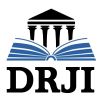Benefits and Drawbacks of Using on-line Assessments of Student Learning in Construction Education
Abstract
Assessment of student learning is a critical step for achieving a quality learning environment in construction/civil engineering education. Proper assessment strategies are also significant drivers of the paradigm shift from instruction based education to learning based education. Additionally, accreditation requirements call for programs to “implement and support a systematic and broad-based approach to the assessment of student learningâ€.
The paper will review and compare the two major points of view on student learning: the constructivist instructional reform and the measurement/technical quality approach. The two methods of measuring student learning (summative evaluation and formative evaluation) will be described.
Even if on-line assessments of student learning use typical summative evaluation tools like tests, quizzes and surveys, they can also be categorized as formative when used constantly during the semester (i.e. practice tests or quizzes).
For the past three years the author has been the principal instructor for CONM150 “Heavy Construction Equipment†class which is taught to Construction Management (CM) freshmen. After two years of using traditional assessment techniques, in spring 2015 the instructor adopted Blackboard Learn (BB) as a course management software. Class assessments were exclusively offered through BB. The paper will cover the way in which assessments on BB were designed. A list of lessons learned will be presented based on grade comparison and also on the students’ feedback and comments.
Keywords
Full Text:
PDFReferences
ABET, Criteria for Accrediting Engineering Programs, 2007, www.abet.org.
Barr, R., Tagg, J., From Teaching to Learning - A New Paradigm for Undergraduate Education, Change Magazine, Vol. 27(6), Taylor & Francis Group, Philadelphia, 1995, http://www.maine.edu/pdf/BarrandTagg.pdf.
Boyles, P.C., Maximizing Learning Using Online Student Assessment, Online Journal of Distance Leaning Administration, vol.14, 2011, http://www.westga.edu/.
Chung, C., Changing Engineering Curriculum in the Globalized World, New Horizons in Education, Vol. 59(3), Hong Kong, 2011, http://files.eric.ed.gov/fulltext/EJ955545.pdf
Erstad, O., Changing assessment practices and the role of IT, International handbook of information technology in primary and secondary education, Vol. 1, New York: Springer, 2008.
Felder, R.M., Silverman, L.K., Learning and teaching Styles in Engineering Education, Engr. Education, Vol. 78(7), 1988, http://www4.ncsu.edu/unity/felder/public/Papers/LS-1988.pdf
Kim, J.S., The Effects of a Constructivist Teaching Approach on Student Academic Achievement, Self-concept, and Learning Strategies, Asia Pacific Education Review, Vol. 6, No. 1, 2005, http://files.eric.ed.gov/fulltext/EJ728823.pdf.
McInnis, J.R., Devlin, M., Assessing Learning in Australian Universities, Centre for the Study of Higher Education, Canberra, Australia, 2002.
O’Farrell, C., Enhancing Student Learning through Assessment – A Toolkit Approach, 2005, http://www.tcd.ie.
Pellegrino, J. W., The Evolution of Educational Assessment: Considering the Past and Imagining the Future, The sixth annual William H. Angoff Memorial Lecture, Princeton, NJ, 1999, https://www.ets.org.
Ravitz, J.L., Becker, H.J., Wong, Y., Constructivist-Compatible beliefs and Practices among U.S.Teachers, NSF Grant #REC-9600614, 2000, http://www.crito.uci.edu/tlc/html/findings.html.
Shavelson, R. J., A Brief History of Student Learning Assessment, The Association of American Colleges and Universities, Washington DC, 2007, http://cae.org/.
Tremblay, K., Lalancette, D., Roseveare, D., Assessment of Higher Education Learning Outcomes, Feasibility Study Report, Vol. 1, OECD, 2012, www.oecd.org/edu/ahelo.
Wilbrink, B., Assessment in historical perspective, Studies in Educational Evaluation, 31-48, 1997, http://cae.org.
Refbacks
- There are currently no refbacks.
Copyright (c) 2017 INTERSECTII / INTERSECTIONS
Indexed

